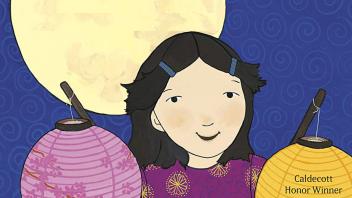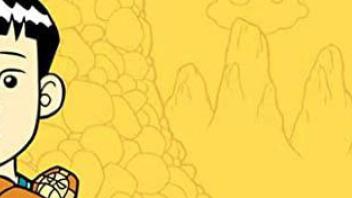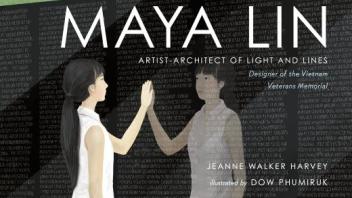When I wrote my three children’s book picture book biographies, Sixteen Years in Sixteen Seconds, the Sammy Lee Story; Shining Star, the Anna May Wong Story; and Twenty-two Cents, Muhammad Yunus and the Grameen Bank, I chose those three people because of their resilience.
Sammy Lee faced great racism. He was not allowed to swim in the town public swimming pool because he wasn’t white, you know, and this is in Pasadena. Do you know how hot Pasadena gets in the summer? It’s three digits. It’s like a hundred degrees out there. This child needs relief from the hot heatwaves, the sun, and he has to be behind a fence. He can’t use the pool ’cause he’s not white. That’s unforgivable. That’s disgusting. It’s hateful. It’s wrong.
What did he do? Ended up becoming a doctor, ended up winning two, not just one, two gold medals for America at the Olympics in diving. You know, that’s resilience. That’s saying I see the best in my country, and I’m going to go towards that, you know, I’m not going to let the hate defeat my dreams. With Anna May Wong, same thing, faced great racism as an actress, you know, did not get a lot of roles because she was not white, you know, had to do stereotype roles like “Mongol slave number four.”
She was hashtag representation matters decades before Twitter and social media even came about.
It’s amazing how she overcame the racism in Hollywood to fight for more dignified roles in Hollywood. And it’s because of Anna May Wong that we have things like the blockbuster megahit Shang-Chi from Marvel, you know, why we have Crazy Rich Asians, why we have Parasite and Minari, two Korean and Korean-American movies back to back at the Oscars.
You know, we owe a lot of that fight in Hollywood because she fought for the importance of positive imagery on the screen. That’s resilience. She didn’t give up. She kept going to those auditions even though she knew she probably would not get the role. Muhammad Yunus grew up, he came from a well-off family, but they were surrounded by poverty, and he watched his mother, they were making a favorite family snack, she would give them instead to the kids. He would say all the kids would tell the mom go for it, give it to the poor people outside, the homeless.
And he was so inspired by his mother’s compassion for the homeless and the poverty stricken in Bangladesh, that would lead to him studying economics and coming up with the brilliant idea of using micro banking where you give very small loans to poverty stricken people so they can actually be enabled and empowered to rise above .
You can’t break the cycle of poverty if you’re not given the same level playing field of getting a fair loan to start your business so you can become economically independent. So, he was resilient. He was a Boy Scout. The Boy Scouts taught him about compassion and giving back to the world. So, that is how and why I choose the subjects for my young adult and children’s book biographies.
I always look for people that are resilient and fight back and enact positive change because that, I think, reading about that inspires and empowers young kids to know that you can do something, you know, you can protest, you can talk to your principal about something that is bothering you at your school. You can speak up and protect your friends against bullying, you know, and so forth. So, to me, that’s why I write the biographies that I do, especially for children’s books. I look for kids that are just strong and resilient and fight back.






